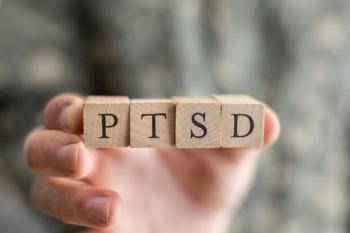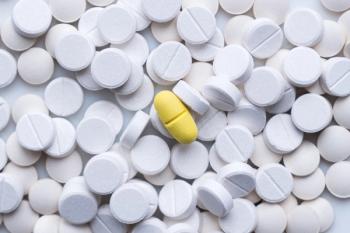
Motor Neuron Medication May Assist in Treatment of PTSD
A recent study found riluzole may effectively combat hyperarousal symptoms in combat veterans with PTSD.
According to a recent study by researchers at the Uniformed Services University of the Health Sciences (USU)1, a motor neuron disease medication might also have the potential to help treat posttraumatic stress disorder (PTSD). As current pharmacologic treatments for PTSD have demonstrated limited efficacy, the study investigated the efficacy of glutamate modulation with riluzole augmentation for combat-related PTSD symptoms resistant to treatment.
Riluzole, commonly used to treat illnesses like Lou Gehrig disease, was tested to gauge whether it could be added to antidepressant medications that combat veterans were already taking for PTSD to help decrease their symptoms, particularly symptoms linked to suicide.
Army Colonel David Benedek, MD, chair of USU’s department of psychiatry and one of the study authors, said to the press, “At USU, we were particularly interested in the potential benefits of this medication for persons suffering from combat-related PTSD as persistent symptoms may negatively impact military readiness.”2
A group of combat veterans receiving riluzole were compared to a group receiving a placebo, and while there was not a significant difference in overall symptoms, the group receiving riluzole did see significant improvement in a particular cluster of symptoms.
“Our results, though they should be interpreted cautiously, indicate that riluzole may reduce hyperarousal symptoms in combat veterans who are continuing to experience these symptoms despite treatment with antidepressants,” said Patricia Spangler, PhD, the study’s first author and a clinical research psychologist employed by the Henry M. Jackson Foundation in USU’s Center for the Study of Traumatic Stress (CSTS).2
Hyperarousal is one of the primary symptoms of PTSD. When an individual’s body responds with high alert after thinking about their trauma, they respond as if a real threat is present.
According to Spangler, it is important to focus on treating hyperarousal symptoms, as they are related to suicide attempts among combat veterans. She added that patients with high hyperarousal are less responsive to some PTSD psychotherapies.
References
1. Spangler PT, West JC, Dempsey CL, Possemato K, et al. Randomized controlled trial of riluzole augmentation for posttraumatic stress disorder: efficacy of a glutamatergic modulator for antidepressant-resistant symptoms. J Clin Psychiatry. 2020;81(6):20m13233.
2. Uniformed Services University of the Health Sciences. Motor Neuron Drug Shows Promise as Treatment for PTSD Symptoms Linked to Suicide Attempts. Press release. October 27, 2020.
Newsletter
Receive trusted psychiatric news, expert analysis, and clinical insights — subscribe today to support your practice and your patients.







